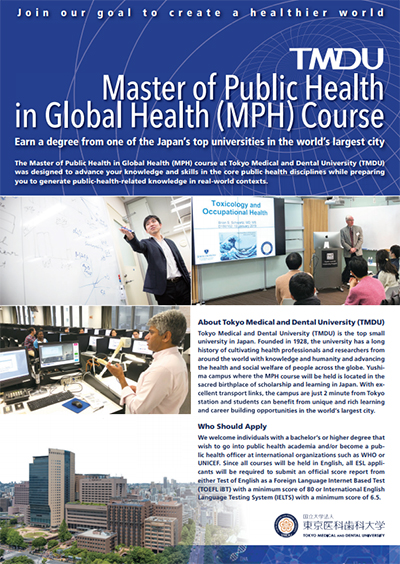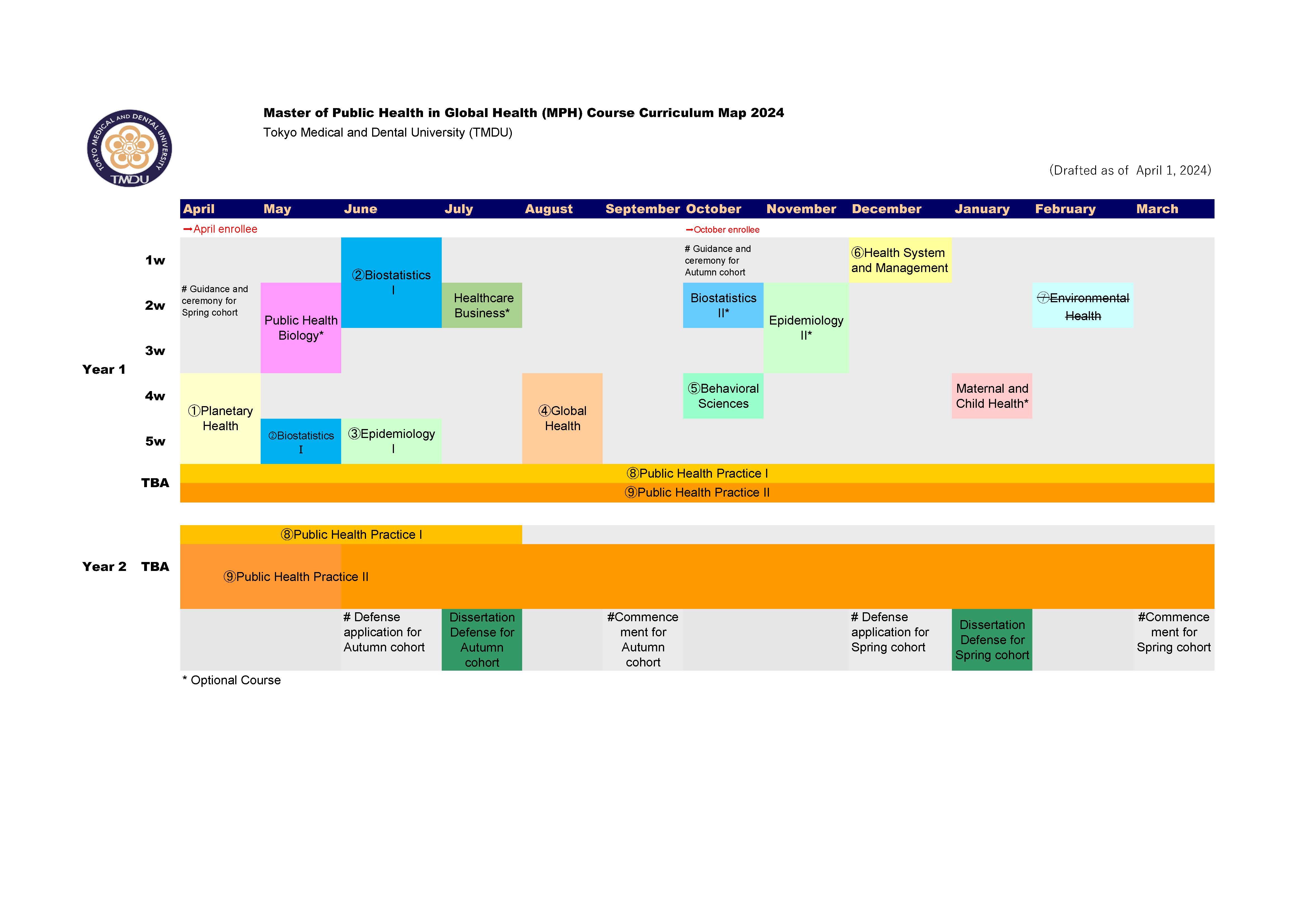Overview
The Master of Public Health in Global Health (MPH) course at Institute of Science Tokyo (Science Tokyo) was designed to advance your knowledge and skills in the core public health disciplines while preparing you to generate/translate/disseminate public-health-related knowledge in real-world contexts.
Program Components
1st year:
In-class course work at our Tokyo campus
2nd year:
Original public health research about the country of your choice (Tokyo campus/online)
Completion of a master's thesis (Tokyo campus/online)
[Optional] Internship at an international organization

Teaching Methods
Both core and elective courses will be conducted using lecture-based and active, case-based learning approaches (known as case methods). Throughout the course, students will have ample opportunity to apply theories learned in lecture-based classes to realistic situations using case-based discussion. These case-based active discussions allow students to obtain more practical and cross cutting competencies such as collaboration, communication, critical thinking, and professional leadership. Students can also gain an overview of topics and up-to-date knowledge though lectures from invited first-class lecturers, and improve techniques such as statistical analysis though tailored exercises.
Academic Advisor
Each student will be assigned a Science Tokyo-MPH course faculty member to be your academic advisor. The role of academic adviser is to provide you with academic guidance, information, and supervise your research project that you will conduct in the second year. You and your adviser must communicate frequently to discuss your plan and progress. You can express whom you would like to be your academic advisor at the time of application.
Core Courses
- Behavioral Sciences
- Introduction to Biostatistics/BiostatisticsⅠ
- Introduction to Epidemiology/EpidemiologyⅠ
- Social Epidemiology/EpidemiologyⅡ
- Global Health
- Health System and Management
- Environmental Planetary Health
- Public Health Practice Ⅰ
- Public Health Practice Ⅱ
Elective Courses
- Biostatistics in Practice/BiostatisticsⅡ
- Maternal and Child Health
- Public Health Biology


